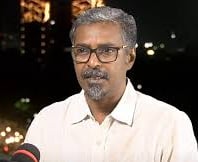YouTuber Felix Gerald Arrested for Spreading False Information on Karur Stampede
Tamil Nadu police arrested YouTuber Felix Gerald for allegedly spreading false rumours about the tragic Karur stampede. The arrest highlights growing concerns about misinformation on social media. Though granted conditional bail, the case raises questions about accountability, freedom of speech, and the responsibilities of online creators in shaping public perception.


By: Bharat Daily Samachar Date: 1 October,2025
The growing influence of social media platforms has transformed the way news, opinions, and narratives reach the public. But with influence comes responsibility—and sometimes, controversy. In Tamil Nadu’s Karur district, this debate surfaced dramatically when YouTuber Felix Gerald was arrested for allegedly spreading rumours regarding a stampede incident that claimed multiple lives. While the courts have since granted him conditional bail, the case has ignited discussions on free expression, accountability, and the potential dangers of unchecked misinformation.
The Karur Stampede Tragedy
The incident that triggered the controversy unfolded during a crowded event in Karur. Thousands had gathered, and amid the chaos, a stampede broke out, leaving several dead and others injured. The tragedy shocked the state and prompted immediate attention from both authorities and the public.
In the aftermath, news channels and officials rushed to cover the story. However, like in many modern tragedies, unverified videos, speculative reports, and social media commentary also began to circulate rapidly online. This digital noise, according to police, included content from YouTuber Felix Gerald.
The Allegations Against Felix Gerald
Authorities allege that Gerald shared false and misleading claims related to the stampede, including unverified causes and conspiracy theories about mismanagement. While his videos gained traction quickly, officials argued that they fueled panic, mistrust, and confusion during a sensitive time when families and victims were already reeling from grief.
The police acted swiftly, arresting Gerald under sections related to spreading rumours, creating public disorder, and misusing digital platforms. His arrest, however, was not just about a single video—it symbolized a larger warning against the misuse of social media to push sensational or misleading narratives.
Conditional Bail Granted
After spending time in custody, Gerald’s legal team approached the court for relief. The judiciary eventually granted him conditional bail, though with restrictions designed to ensure he does not repeat the alleged offence. Among the conditions, Gerald is required to cooperate with the investigation, avoid posting inflammatory content, and report to authorities at scheduled intervals.
This judicial balancing act reflects a deeper dilemma: how to respect an individual’s right to free speech while preventing misuse of digital platforms that could worsen public crises.
Free Speech vs. Responsible Content
The arrest sparked immediate reactions online. Supporters of Gerald argue that freedom of speech should protect content creators, even if their views are unpopular or controversial. They claim the arrest reflects excessive policing of digital expression.
On the other side, critics stress that freedom of speech is not freedom to misinform—especially during crises. They argue that spreading unverified rumours during tragedies can not only damage reputations but also risk lives by influencing how people respond to emergencies.
This clash of perspectives is hardly new in India, where laws governing online content often collide with questions of liberty, accountability, and censorship.
Role of Social Media in Crisis Situations
The Karur incident is not the first time social media has been accused of intensifying chaos after a tragedy. From natural disasters to political unrest, rumours often spread faster than official updates, creating confusion among the public.
In this context, YouTubers and influencers, who command significant audiences, carry even greater responsibility. Their content is not only consumed by followers but often shared further, multiplying its reach and potential impact. A single misleading statement can distort perceptions for thousands—sometimes millions—within hours.
Legal Landscape and Precedents
India’s legal framework empowers authorities to act against those accused of spreading false information, especially when it endangers public peace. Sections of the Indian Penal Code and the Information Technology Act allow police to investigate and prosecute such cases.
However, critics argue that these laws are sometimes vague and open to misuse, potentially stifling genuine criticism or independent reporting. The Felix Gerald case may, therefore, set an important precedent for how courts interpret the balance between punishing misinformation and protecting free expression in the digital age.
Public Reaction and the Road Ahead
The case has attracted wide attention, not just in Tamil Nadu but across India. Media watchdogs, digital rights activists, and political figures are watching closely. Some call for greater digital literacy campaigns to help audiences verify information before believing or sharing it. Others push for clearer legal definitions of what constitutes harmful misinformation.
For Gerald himself, the conditional bail is a reprieve but not an end. The investigation will continue, and his future as a content creator may depend on how the case unfolds. It also serves as a cautionary tale for others in the influencer space: chasing views at the cost of accuracy can carry serious legal and ethical consequences.
A Larger Lesson for Digital India
The arrest of Felix Gerald is more than just a courtroom story—it is a snapshot of India’s digital challenges in 2025. With over 800 million internet users and a booming creator economy, the country stands at a crossroads. Social media has given citizens unprecedented power to share, influence, and question. But without responsibility, this power can fuel misinformation, deepen divides, and endanger lives.
As the Karur tragedy shows, the consequences of misinformation are not abstract—they are painfully real. Families who lost loved ones in the stampede deserve facts, clarity, and compassion, not sensational rumours. Whether one supports Gerald’s arrest or criticizes it, the underlying lesson remains clear: in today’s interconnected world, truth matters more than ever.
